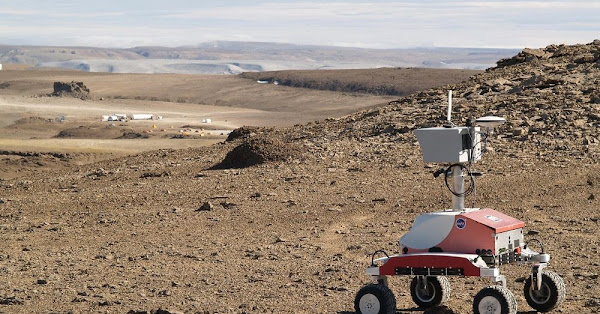nagoyasuzukiamerica.com – Devon Island, the 27th-largest island in the world, is a desolate and barren land located in the Canadian Arctic Archipelago. Its stark, Martian-like landscape, characterized by rugged mountains, icy plains, and deep canyons, offers a glimpse into a world devoid of life. Despite its harsh and unforgiving environment, Devon Island has become a valuable site for scientific research, particularly in the fields of astrobiology and climate science.
A Harsh Arctic Climate
Devon Island’s climate is characterized by extremely cold temperatures, strong winds, and limited precipitation. The island experiences long, dark winters and short, cool summers. The combination of these factors creates a harsh environment that is inhospitable to most life forms. However, a few hardy species, such as arctic foxes, musk oxen, and polar bears, have adapted to these extreme conditions.
A Unique Geological History
Devon Island’s unique geological history has shaped its distinctive landscape. The island is composed of ancient rocks that provide valuable insights into the Earth’s past. Scientists have discovered evidence of past volcanic activity, glacial erosion, and tectonic uplift, which have all contributed to the island’s diverse geological features.
A Martian Analog Site
One of the most significant aspects of Devon Island is its resemblance to the surface of Mars. The Haughton Impact Crater, a large impact crater located on the island, is often used as a Martian analog site for scientific research. Scientists study the crater’s geology, mineralogy, and microbial ecology to gain a better understanding of the Martian environment and the potential for life on the Red Planet.
A Challenging Environment for Research
Conducting research on Devon Island is a challenging endeavor. The remote location, harsh weather conditions, and limited infrastructure make it a difficult place to work. However, the scientific value of the island has attracted researchers from around the world. Despite the challenges, scientists continue to explore Devon Island’s unique landscape and uncover its secrets.
The Future of Devon Island
As climate change continues to alter the Arctic, Devon Island is likely to experience significant changes in the future. Rising temperatures could lead to increased melting of glaciers and permafrost, which could have far-reaching consequences for the island’s ecology and geology. Despite these challenges, Devon Island remains a valuable resource for scientific research and a testament to the resilience of life on Earth.
